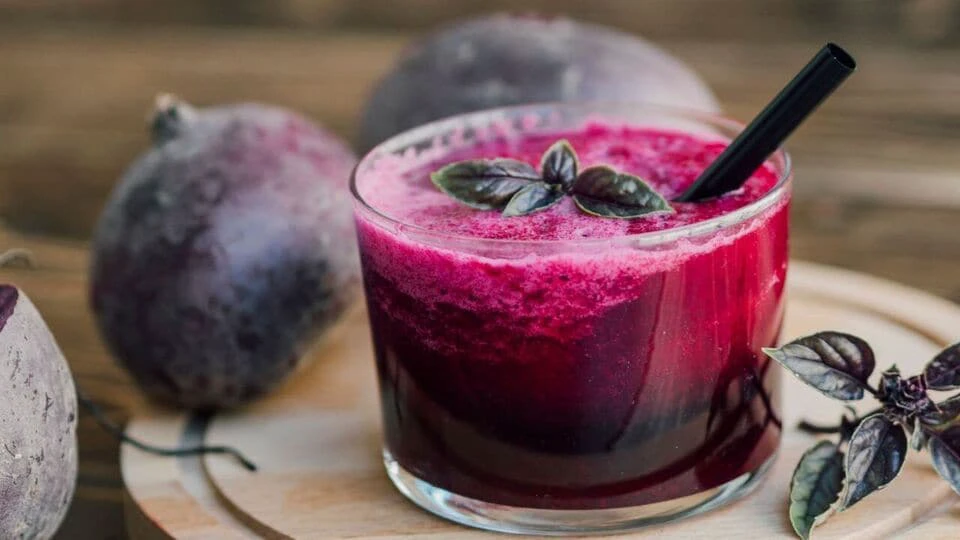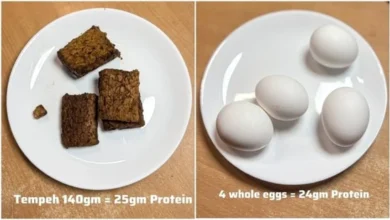Is drinking beetroot juice daily the secret to good health? Experts reveal benefits, risks and the best ways to have it

Facing issues with bloating, poor digestion, dull skin, or concerns related to liver and heart health? Beetroot juice might just be your natural alternative.
According to a study published in News-Medical Life Sciences, beetroot has been shown to positively influence gut microbiota and metabolic pathways, which can enhance digestion, improve nutrient absorption, and support immune function within the gut.
Health benefits of beetroot juice
Beetroot juice consists of vitamins, minerals, and beneficial substances, including betalains (the red-violet pigments like betacyanin and yellow-orange betaxanthin) and inorganic nitrates. Together, these elements work to reduce inflammation, improve blood flow, and promote liver detoxification while giving a natural glow to the skin. However, daily consumption comes with certain limitations and should be as per individual needs. Health Shots reached out to Dr Archana Batra, Dietitian and Certified Diabetes Educator, for insights into the benefits and side effects of drinking beetroot juice every day.
1. May improve cardiovascular wellness
Beetroot has a high content of nitrates. These natural compounds convert into nitric oxide in the body, a molecule that helps to dilate blood vessels, explains Dr Batra.
- Reduces high blood pressure: By relaxing and widening arteries, nitric oxide improves blood flow, significantly reducing high blood pressure.
- Improves exercise performance: The enhanced blood flow delivers oxygen more efficiently to muscles, boosting stamina and endurance during workouts.
- Supports detoxification: Betalains, the pigments that give beets their color, are potent antioxidants that support liver function, aiding the body’s natural detoxification processes.
2. Skin benefits
- Anti-aging properties: The high levels of antioxidants (like vitamin C and betalains) combat free radicals, which are responsible for premature aging and dullness. This helps maintain skin elasticity and a youthful appearance.
- Reduced inflammation: The anti-inflammatory properties can help soothe skin conditions like acne and eczema, promoting clearer skin.
- Improved complexion: By boosting circulation, beetroot juice ensures skin cells receive more oxygen and nutrients, resulting in a healthy, natural flush.
3. Body wellness
- Anti-inflammatory action: Chronic inflammation is linked to many diseases. Beetroot juice’s anti-inflammatory effects help maintain cellular health.
- Digestive regularity: Being a beneficial source of fiber (especially when consuming the pulp), it supports a healthy gut microbiome and regularity.
Side effects of beetroot juice
While highly beneficial, beetroot juice is not for everyone. Some people might face certain health issues.
- Avoid beetroot if you have kidney stones. Beetroot is high in oxalates. For individuals with a history of calcium oxalate kidney stones, high consumption can increase the risk of stone formation. Moderation in consumption is advised, or it may be best to consult a doctor before adding this juice to your diet.
- Beeturia: While this cannot exactly be called a side effect, it could leave people worried. That’s because drinking beetroot juice can cause urine and stool to appear pink or red – a harmless condition called Beeturia.
- Digestive issues: Beetroot is moderately high in FODMAPs (fermentable carbohydrates). People with Irritable Bowel Syndrome (IBS) may experience gas, bloating, or stomach upset.
- Avoid if you have hypotension: Since beetroot juice lowers blood pressure, individuals already taking blood pressure medication should be extra careful. This will help to prevent hypotension.
What is the best dosage and time for beetroot juice?
According to research published in the MDPI journal, here’s how to optimize beetroot juice consumption based on your health goals:
- For blood pressure: Daily ingestion of around 200-800 mg of nitrate (from roughly 70-250 mL of concentrated juice) may reduce clinical systolic blood pressure in hypertensive individuals.
- For athletic Performance:
Acute (single dose): Consume 8.3-16.4 mmol of nitrate (515-1017 mg) approximately 2-3 hours before exercise. This timing aligns with peak plasma nitrate concentrations.
Chronic (daily use): Regular intake over a longer period (for example, 1-6 weeks) can also be beneficial, particularly for non-athletes’ aerobic endurance and athletes’ muscle strength. The same daily dosage range applies.
General well-being: A cup (around 248 g or 200-250 mL) of beetroot juice daily is generally considered safe for overall health maintenance.








